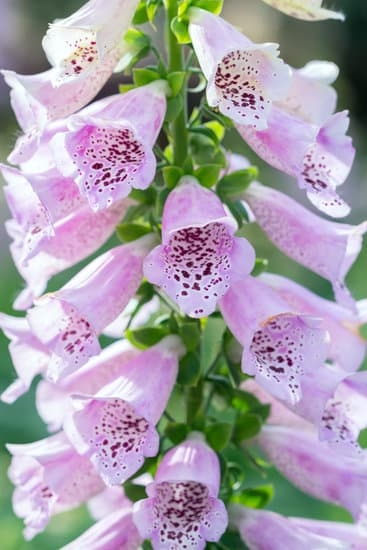Introduction
The science behind gardening has long been praised by gardeners around the world. Understanding this science is one of the keys to successfully growing a beautiful, bountiful garden. From choosing the right fertilizer for soil improvement to studying how different plant varieties require differing amounts of light and water, there is an abundance of knowledge that each gardener must take into account in order to ensure success.
Not all myths about gardening are true, however. It is commonly believed that plants need direct sunlight; however, many plants can actually benefit from indirect sunlight, or even artificial lighting systems. Additionally, it was once thought that removing weeds was necessary for better crop yield; however research now suggests that weed removal can actually deplete vital nutrients from the soil and inhibit growth of nearby plants as well as other desirable vegetation. By demystifying common misconceptions and educating yourself with proper and current scientific insights into gardening practices you can be sure to have a successful harvest no matter what level you are at – amateur or connoisseur!
The Benefits of Gardening Science
Gardening Science is the study of various gardening methods such as soil management, crop cultivation, pest control and seed protection. This focused and logical approach to gardening can lead to increased success with plants and provide amazing benefits beyond just esthetics. Studies have shown that growing your own food not only leads to improved physical health, but it can also help with depression, self-sufficiency and stress relief.
Soil Biogeochemical Cycles – Gardening uses a sophisticated understanding of soil biogeochemical cycles in order to create a perfect environment for beneficial plants to grow. Composting, tilling and other conservation techniques can create better drainage and help retain moisture for future use. Organic matter like manure, compost tea or vermicomposting can improve nutrient rich soil for better plant growth.
Water Conservation – Understanding how much water is required for plants to flourish is key in managing them properly. Appropriate irrigation techniques are necessary to ensure the healthiest root environment while preserving natural resources as much as possible. Areas where water is scarce should be watered more carefully so that no resources are wasted while still providing enough water for plant growth.
Plant Pathology – Plant pathology involves learning about diseases that may affect your garden and understanding how best to prevent or treat them before the plant material becomes too damaged or diseased to be recovered. Plant pathologists must understand the life cycle of pathogens in order to identify when they can intervene with treatment or prevention methods such as pruning or fertilization during stages prior to full infestation occurring.
Plant Breeding – Plant breeding encompasses genetic recombination which produces desired traits from selected specimens from previous generations through cross pollination or grafting methods– creating new varieties that are hardy/disease resistant– breaking staying away from traditional hybridizing due painstaking tediousness– creating “super-plants” just like scientists do with certain gene engineered organisms & animals today doing almost miraculous feats with simple gene therapies & treatments & immunizations etc…
The study of gardening science has been proven to improve overall success in gardens of all sizes and types, with tangible benefits both emotionally and physically documented by scientific research studies over time showed positive psychological impact derived from green spaces!
The Fundamentals of Gardening Science
Gardening is a science that involves many different elements to ensure successful plants and bountiful harvests.
Soil composition is one of the most important components when it comes to gardening. The soil needs to contain all the necessary nutrients and be well balanced, as this will affect how well a plant can grow. Other factors, such as texture and pH must also be taken into consideration, so that the right variety of crops can be grown in the optimal environment.
Climate also plays an important role, as certain plants prefer dry conditions or tropical climates over others. Additionally, temperature affects growth rates too, so understanding the microclimate and taking proper steps such as using raised beds or adding mulch can help create the extra heat needed for optimal plant growth.
Nutrition must also be taken into account – plants need a balanced combination of macronutrients (nitrogen, phosphorous and potassium) along with secondary ones like magnesium, sulphur and calcium for healthy growth. They also require micronutrients such as zinc, magnesium and copper for enhanced production, increased immunity and overall vitality. Academic studies have revealed more about how specific nutrient combinations can influence overall health conditions in certain types of flora.
Light exposure is another factor which must be considered when gardening; photosynthesis requires suitable lighting to enable the plant’s energy reserves to develop fully. Lastly, choosing quality seeds is a key step towards growing healthy plants which produce good yields – whether it’s vegetables or flowers – as higher quality seeds generally yields healthier vegetation with faster germination rates than lower quality products do.
In conclusion, gardening requires knowledge on many different aspects related to soil composition, water requirements and climate conditions etc in order to ensure successful cultivation results.
Advanced Gardening Science Concepts
The Science Of Gardening encompasses a wide variety of different fields and disciplines. One important concept is the study of how living organisms interact with each other, as well as their environment. This includes the study of plant nutrition and photosynthesis, mineral uptake, soil chemistry and ecology, climate adaptation, seed biology, pest management, water usage, and other relevant topics.
Biological interactions include the transmission of diseases through pests or pathogens as well as mutualistic relationships between plants and modern agriculture. Understanding these processes helps growers better choose which varieties to cultivate in order to obtain optimal growth conditions while minimizing risks associated with pest damage or disease.
Plant Function encompasses effects such as proper growing sites, water management practices including irrigation systems and nutrient management strategies, along with optimizing plant health and overall yield outcomes. Pest control is another important factor when considering optimal crop yields since pests often destroy crops due to unbalanced biological cycles or incorrect hazard assessment practices within the garden environment.
By researching all facets of plant function and subsequent pest control within a given garden or farming area, growers can accurately assess potential risks associated with choosing certain varieties over others in order to maximize yield outputs without sacrificing quality standards or safety protocols.
Technology in Gardening
Over the years, technology has had an immense impact on gardening. There are now a plethora of gadgets and tools designed to help gardeners work smarter and more efficiently.
One of the most obvious impacts of technology in gardening is robotic lawn mowers. Robotic lawn mowers can autonomously mow your lawn according to predetermined settings, eliminating the need for manual labor. They also optimize grass cutting efficiency, leading to healthier lawns with less effort required from people.
Another application of tech in gardening is smart thermostats. Smart thermostats enable gardeners to set ideal temperatures for their greenhouses and gardens so plants receive optimal amounts of sunlight while keeping energy costs down. Many smart thermostats also come with handy features such as controlling humidity levels and measuring soil moisture. Additionally, this kind of tech allows gardeners to minimize the amount of time they spend monitoring environment conditions and instead focus on tending to their plants more frequently.
Finally, various apps have been developed that can help homeowners monitor, control and adjust real-time gardening conditions through their smartphones or tablets. With these apps, users can quickly access growing information like water needs, fertilizer requirements and potential plant diseases from any location – no matter how remote – helping them maintain their gardens with greater accuracy, convenience and knowledge than ever before.
Practical Applications of Gardening Science
Gardening science is the study of horticulture; a branch of botany that deals with the art, craft and science of growing fruits, vegetables, flowers and other plants. Gardening is an enjoyable activity for many people who find it relaxing and rewarding to watch their favorite plants flourish in their garden. To ensure success in gardening, it is important to use the principles of gardening science.
Successful gardening can be achieved by first selecting plants that are suited to the environment and soil conditions. Understanding the needs of each plant species is essential in getting them to flourish, such as their light requirements and watering needs. The right combination of water, air temperature, air humidity and soil nutrient levels must all be taken into account when selecting which plants you choose to cultivate in your garden.
Fertilizing correctly is also essential if you want to grow healthy plants with a good yield. Knowing when and how much fertilizer to use can help promote root growth, flower formation, and fruit ripening. While there are many natural fertilizers such as compost and manure that can effectively work within a garden space, many fertilizers on the market contain artificial elements which could have an adverse effect on certain types of plants. Therefore it is imperative you do your research before deciding on a fertilizer for your garden
Mulching or covering up bare spots between plants minimizes weed growth (especially when combined with proper weeding techniques). It also helps retain soil moisture during dryer months so that less frequent watering is needed along with providing beneficial microorganisms access to more oxygen enabling better plant growth.
Lastly maintaining healthy soil through regular testing will alert you to any problems such as nutrient imbalances that could affect the health of your garden’s vegetation over time. Working tirelessly at keeping an eye out for pests like aphids or fungal infestations plus having solutions like traps or organic insecticides on hand will help protect your precious crop from harm
Conclusion
The science of gardening is about much more than simply planting the right type of seeds in the soil. It requires a deep understanding of variables like climate, soil quality and composition, ideal nutrient mixtures, pollination methods, proper plant care and maintenance, pest control methods and harvesting techniques. Ultimately, coming to terms with these issues is essential for successful gardens. With good knowledge of the science behind gardening, anyone can learn to create a gorgeous garden that will thrive in any type of environment or setting.

Welcome to my gardening blog! I am passionate about plants and enjoy sharing my knowledge and experiences with others. In this blog, I will write about everything related to gardening, from tips on how to get started to updates on my own garden projects.





